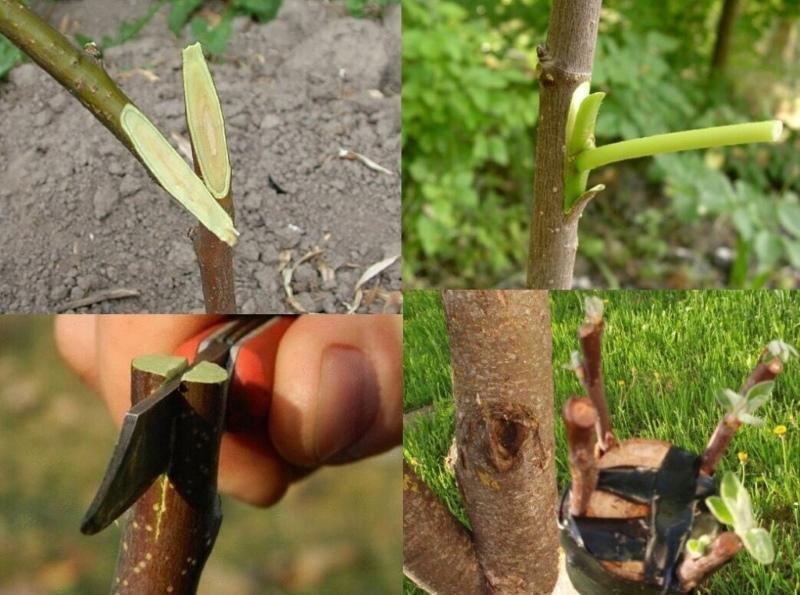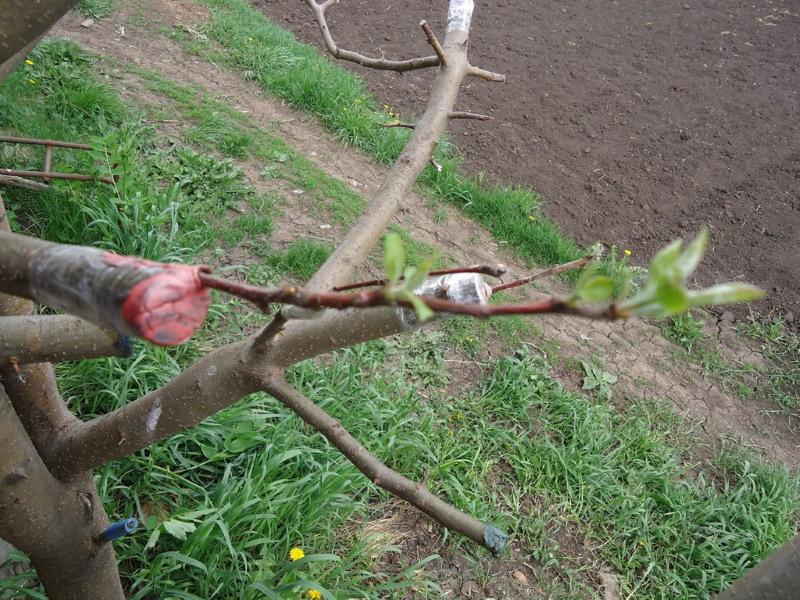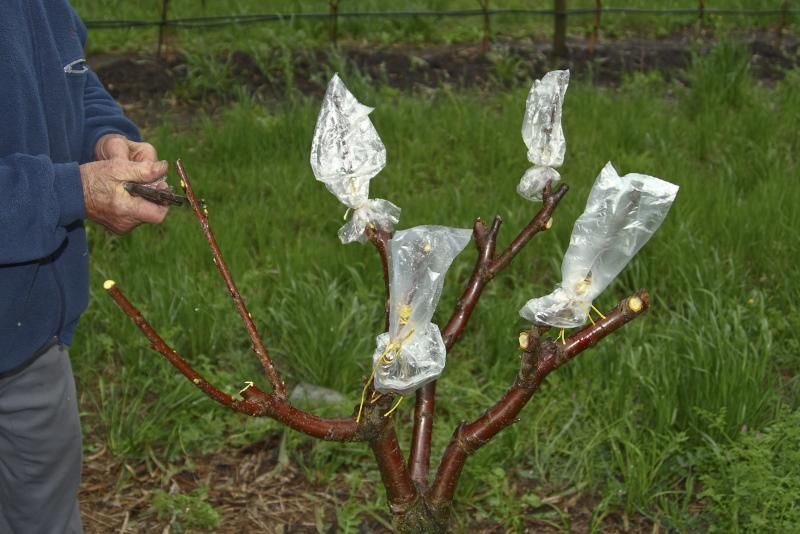Grafting fruit trees - the best ways
 And apple trees, and cherries, and peaches can be propagated by seeds, but what happens in the end is unknown, because varietal characteristics are lost in this case. The grafted tree completely retains the parental characteristics of the scion. Therefore, grafting fruit trees, the best methods and optimal timing for its implementation are the basics that every gardener should know. The procedure can have different goals. Obtaining a cultivated plant with increased frost resistance, increasing productivity, saving space, rejuvenating the old garden ... But there are certain rules for its implementation, which must be followed. And a variety of ways will allow even beginners to cope with this.
And apple trees, and cherries, and peaches can be propagated by seeds, but what happens in the end is unknown, because varietal characteristics are lost in this case. The grafted tree completely retains the parental characteristics of the scion. Therefore, grafting fruit trees, the best methods and optimal timing for its implementation are the basics that every gardener should know. The procedure can have different goals. Obtaining a cultivated plant with increased frost resistance, increasing productivity, saving space, rejuvenating the old garden ... But there are certain rules for its implementation, which must be followed. And a variety of ways will allow even beginners to cope with this.
Choice of rootstock and scion

The most hardy stock will be wild. Such a tree will grow large frost-resistant... Although you can also graft on clones - trees obtained from cuttings. They will be lower, but they will begin to bear fruit earlier.
Scion cuttings should be cut from crops that have already begun to yield. So it is possible to choose the best and most delicious varieties. In this case, the shoots of the current year are used.
The timing of the vaccination
 The good thing about the vaccine is that it can be carried out almost all year round:
The good thing about the vaccine is that it can be carried out almost all year round:
- in winter, starting in December (used for seedlings in pots and carried out indoors);
- in spring, when it gets warmer and sap flow begins (from March to June);
- in summer, in August.
Grafting fruit trees - the best ways
There are several ways to vaccinate, and whether it works or not depends on the correctness of the actions. So, the vaccine can be:
- For the bark. It is carried out in early spring, before sap flow has begun. A branch is cut to leave a stump. An incision is made on it from the side and the bark is revealed. The scion stalk is cut obliquely, inserted into the cut and the bark is closed.

- Into the cleft. Also in early spring, a stem or branch is cut off onto a stump, and a deep cut-slit is made in this stump in the middle. The graft is cut from both sides in the form of a wedge and inserted into the slot.

- Copulation. It is carried out on dormant buds and thin branches, the diameter of which should be as uniform as possible. The graft (shortened to 3 buds) and the stock are cut obliquely and applied so that the slices coincide.

- Improved copulation. Everything is similar to the procedure described above, only additional tongue cuts are made on the cuttings.

- Budding. It is carried out in spring and summer with the help of a bud scion. It is inserted into the T-shaped incision on the rootstock branch.

The vaccine usually takes root after a couple of weeks. This can be determined by the fact that the shoot or stalk begins to develop and release leaves.